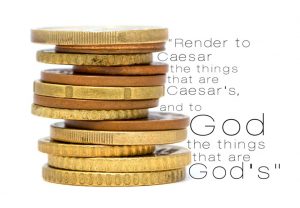belief follows action
What motivates us is often hidden deep within, so deep at times we find it difficult to know even for ourselves why we harbor certain desires, enjoy various activities, believe what we believe, or choose all manner of things that are oftentimes completely at odds with what others might choose. As much as we share in common the more we wish to differ.

Two Truths
What fascinates and intrigues often shares title with banal and boring; what speaks of truth and beauty rarely finds agreement. We are in many ways truly an altogether disagreeable species, continuously at odds with anyone or anything, even going so far as to find argument solely to be argumentative.
As Christians and Catholics we are called upon to be ‘contenders’ for our faith. We are told “Always be ready to give an explanation to anyone who asks you for a reason for your hope, but do it with gentleness and reverence, keeping your conscience clear, so that, when you are maligned, those who defame your good conduct in Christ may themselves be put to shame. For it is better to suffer for doing good, if that be the will of God, than for doing evil.”[1] Yet to be ready to give an explanation for your hope you must know what you believe and why you believe it. And sadly, that is where many of us fall short for we live in an increasingly godless world, a world where the mere mention of God or Jesus Christ produces sanction and taboo. As Dinesh D’Souza explains:
“No longer does Christianity form the moral basis of society. Many of us now reside in secular communities, where arguments drawn from the Bible or Christian revelation carry no weight, and where we hear a different language from that spoken in church.Instead of engaging this secular world, most Christians have taken the easy way out. They have retreated into a Christian subculture where they engage Christian concerns. Then they step back into secular society, where their Christianity is kept out of sight until the next church service. Without realizing it Christians have become postmodernists of a sort: they live by the gospel of the two truths. There is religious truth, reserved for Sundays and days of worship, and there is secular truth, which applies the rest of the time.”[2]
This reluctance to defend our faith against the onslaught of materialism and the secular worldview has produced a hebetudinous moral lassitude[3] throughout our society. As Karl Keating has remarked “We often are cautioned against people who don’t practice what they preach. The real problem is people who preach what they practice. … Belief follows action. Engage long enough in a wrong action, and you end up believing it to be meritorious. You conform your thinking to your deeds—a fine way to minimize shame—instead of conforming your deeds to your (right) thinking.”[4]
In taking the easy way out, Christians have abrogated their calling to be contenders for their faith. And most importantly, those most impacted by this bifurcated absurdity are our young who may well grow up never understanding the difference.
[1] 1 Peter 3:15-17.
[2] Dinesh D’Souza, What’s So Great About Christianity, Regnery Publishing, 2008.
[3] Translation: a dull moral weariness. My apologies, I simply could not help myself.
[4] Karl Keating, Collected Wisdom: Waiting for the Culture to Change, Catholic Answers Magazine, May/June 2016.
